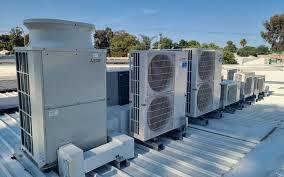For many homeowners, the water heater is one of those “out of sight, out of mind” appliances—until it stops delivering hot water. At that point, the inconvenience is immediate and the need for a solution urgent. While repairs can sometimes extend the life of a unit, there comes a point when water heater replacement is the smarter choice. Knowing when that time has arrived can save you from unexpected breakdowns, costly emergency calls, and discomfort.
Recognizing the Warning Signs
A failing water heater rarely quits without giving some notice. There are several clear signs to watch for:
- Inconsistent hot water – If your showers suddenly turn cold halfway through, your unit may be struggling to keep up.
- Age – Most units last between 8–12 years. If yours is in that range, it’s wise to start preparing for a replacement before it fails.
- Leaks – Even small leaks can cause major water damage over time and usually indicate internal tank issues.
- Rust-colored water – Corrosion inside the tank often means the end is near.
When these symptoms appear together, replacement becomes less about “if” and more about “when.”
Why Proactive Replacement Makes Sense
Waiting until the water heater stops working can leave you in a stressful situation, scrambling for quick solutions. Choosing to replace it proactively has advantages. You have the time to research models, compare efficiency ratings, and schedule installation at your convenience rather than in the middle of a crisis.
Benjamin Franklin Plumbing often recommends proactive planning because it gives homeowners control over the process, including selecting the right unit for their household needs.
Choosing the Right Replacement
Today’s market offers a range of water heaters, each with different benefits:
- Standard tank models – Affordable and reliable, available in a variety of sizes.
- Tankless systems – Heat water on demand, offering energy efficiency and endless hot water.
- Hybrid models – Combine the benefits of both, offering storage with improved efficiency.
The right choice depends on your water usage, budget, and long-term energy goals.
Sizing for Performance and Efficiency
Replacing a water heater isn’t just about swapping out the old one—it’s an opportunity to improve performance. If your household has grown or your usage has changed, upgrading to the correct size ensures you get consistent hot water without wasting energy.
A professional assessment will take into account the number of people in your home, the number of bathrooms, and peak usage times.
Installation Considerations
Water heater replacement involves more than removing the old tank and hooking up the new one. It requires safe disconnection, proper handling of water and gas or electrical lines, and ensuring the new unit is installed in compliance with building codes.
A proper installation also includes checking for leaks, confirming temperature settings, and testing safety features before the system is put into service.
Maximizing Longevity After Replacement
Once your new water heater is installed, regular maintenance is key to protecting your investment. Annual inspections, tank flushing to remove sediment, and checking components like the anode rod can extend the lifespan of the unit and keep it performing efficiently.
These small preventive steps help you get the most out of your water heater replacement, saving money in the long run.
Energy Efficiency and Cost Savings
Modern water heaters are far more efficient than older models. This means replacing your unit can lead to lower energy bills, especially if you choose a model with a high Energy Factor rating. Over time, the savings can offset a portion of the upfront cost.
Benjamin Franklin Plumbing works with homeowners to help them understand these efficiency options and the potential return on investment.
Preparing for the Transition
To make the replacement process as smooth as possible:
- Clear the installation area for easy access.
- Plan for a short period without hot water during the switch.
- Discuss any additional upgrades—such as improved insulation or smart temperature controls—with your installer.
The more prepared you are, the faster and more efficient the replacement will be.
Final Thoughts
A water heater replacement isn’t just about restoring hot water—it’s about upgrading a critical system in your home. By acting before your unit fails, you can choose the right model, improve efficiency, and ensure reliable performance for years to come.
With experienced providers like Benjamin Franklin Plumbing, the process becomes less stressful and more strategic, giving you the comfort and confidence that your home is in good hands.






